MercoPress. South Atlantic News Agency
Tag: Argentina inflation
-
Tuesday, April 17th 2018 - 08:14 UTC
Argentina's inflation hard to beat: “inflation has to fall a lot in May”
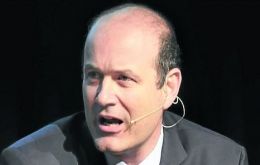
Argentina’s central bank would raise interest rates if inflation does not fall “a lot” beginning in May to a level consistent with its 2018 target for a 15% rise in consumer prices, central bank Governor Federico Sturzenegger said on Monday.
-
Wednesday, March 14th 2018 - 09:15 UTC
Argentina central bank leaves basic rate unchanged to combat inflation
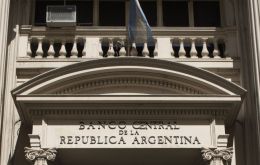
Argentina's central bank left the basic interest rate unchanged at 27.5%, a clear signal that inflation remains the main challenge of the country's monetary policy. The bank also revealed that last week it intervened in the local market with 400 million dollars to keep the US dollar in the range of 20/20,50 Pesos to the greenback.
-
Tuesday, February 20th 2018 - 09:23 UTC
Union leader political rally in Buenos Aires to challenge Macri and his policies
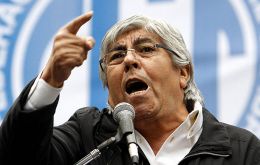
The Argentine powerful teamsters union will be holding their first political rally in downtown Buenos Aires this Wednesday in a clear defiance of President Mauricio Macri's policies to combat inflation, launch the economy and attract foreign direct investors. Hugo Moyano a member of the unions' umbrella organization has promised to convene some 300.000 workers and has anticipated that any incidents will be the responsibility of the government.
-
Wednesday, February 14th 2018 - 07:10 UTC
The Wall Street Journal: “Inflation stalks Macri in Argentina”

The Wall Street Journal has published a piece on the political situation of Argentine president Mauricio Macri, battling inflation, an undelivered electoral pledge, and allegedly very much aware of a long standing spell: no non Peronist president has been able to complete the mandate for which he was elected.
-
Friday, January 12th 2018 - 10:50 UTC
Argentina inflation reached 24.8% in 2017, well above central bank's target
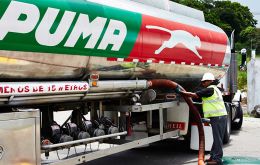
Consumer prices in Argentina rose 24.8% in 2017 after a sharp 3.1% increase in December, government data showed on Thursday, well above the central bank's target range for annual inflation of 12-17%t. The monthly reading, which was above median expectations in December of 2.5%.
-
Wednesday, January 10th 2018 - 09:52 UTC
Argentine central bank cuts basic rate to 28%; annual inflation target 15%
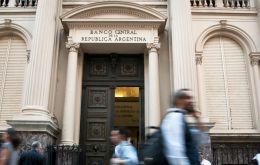
Argentina’s central bank cut its policy rate to 28% from 28.75%, two weeks after relaxing its 2018 inflation target, the bank said on Tuesday. The bank’s first rate cut in 14 months came after a December 28 news conference announcing an official inflation target for this year of 15%, up from the bank’s previous target range of 8% to 12%.
-
Sunday, December 31st 2017 - 10:48 UTC
IMF report on Argentina: good, but watch out borrowing to finance the budget deficit

The International Monetary Fund (IMF) on Friday raised its outlook for Argentina’s economic growth to 2.8% in 2017, up from 2.5% seen in October, while keeping its forecast for 2018 growth steady at 2.5%.
-
Friday, December 29th 2017 - 09:32 UTC
Argentina increases inflation targets for 2018/19, closer to private estimates
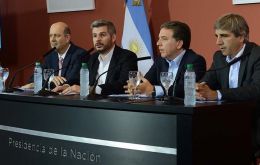
Argentina changed its inflation target for 2018 to 15%, up from the central bank’s previous goal of 8-12%, Treasury Minister Nicolas Dujovne said on Thursday, raising expectations for interest rate cuts. The government will postpone by one year its goal of lowering inflation to 5%, pushing it back to 2020, Dujovne said.
-
Friday, November 24th 2017 - 09:43 UTC
Argentine minister admits inflation will end 2017 at 21%

Argentina's inflation rate will likely end the year above 21%, Treasury Minister Nicolas Dujovne told reporters on Thursday. The government previously estimated that consumer prices in Latin America's third-biggest economy would rise 17% in 2017.
-
Monday, November 13th 2017 - 08:30 UTC
IMF mission praises Macri's reforms but warns on inflation and budget deficit

An IMF visiting team in Buenos Aires concluded its annual review of Argentina's economy and praised the efforts of President Mauricio Macri's nearly two-year-old government to transform the economy saying it has yielded “significant” gains, but also warned that risks remain.
